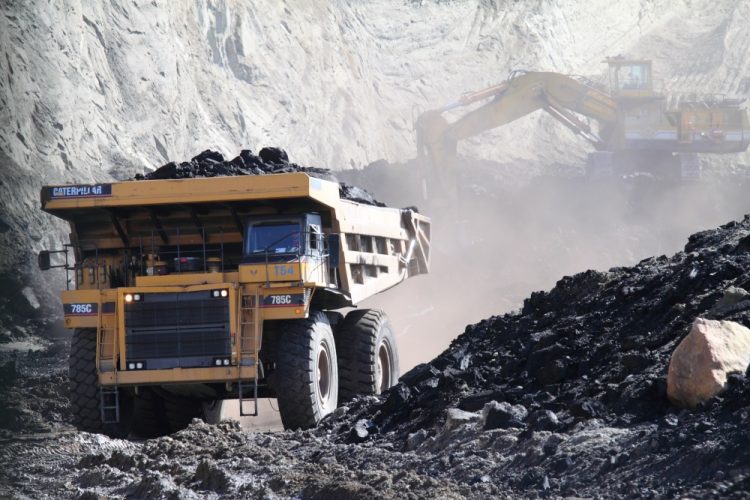Coal price surge sets miners against activists by English seaside

DRURIDGE BAY, England : In northeastern England, a battle is raging between grass roots campaigners and a company intent on digging a new open cast mine as world coal prices soar.
A year after Britain closed its last deep coal mine and pledged to phase out coal-fired power generation, the economics of mining have been transformed.
Coal prices have risen by well over 100 percent this year to $ 100 a tonne. Some mining stocks have risen even more, spurred by U.S. President-elect Donald Trump’s pledges to revive coal and pull out of the Paris Agreement on climate change.
Some wonder how long the coal price surge will last, but in Northumberland, the Banks Group is pressing ahead with plans for a new mine despite opposition from local environmentalists.
Northumberland County Council agreed that Banks could extract 3 million tonnes of coal by cutting an open cast mine near Druridge Bay, a scenic windswept arc of white sand and grassy dunes on the North Sea coast.
The government has “called in” the application, meaning there will be a public enquiry next year.
Jeannie Kielty, who works on community relations for Banks, says open cast is part of the social fabric of the northeast, an area with a long history of coal mining.
“The benefits that come from these sites can’t be over-stated,” she says. “We are frustrated with the call-in because it delays us, but we still believe we can work the site.”
On the other side of the argument is the Save Druridge Bay campaign, which meets in the Drift Cafe, a haven for dog-walkers and bird-watchers not far from Highthorn, the site of the proposed mine.
There is a hard core of eight campaigners, led by the cafe owner Duncan Lawrence. It also has high-profile support from television personality and comedian Bill Oddie, a keen bird watcher who appreciates the pink-footed geese that winter among the dunes.
“Suddenly someone wants to turn the clock back in some really perverse way,” Oddie said at a campaigning beach party in May. “It’s sacrilege.”
Banks has overcome opposition in the past, appealing successfully against a ban on developing another site in the area at Shotton.
Situated on the Blagdon Estate owned by Matt Ridley, a peer and Conservative politician who has said climate change has done more good than harm, Shotton has been mined by Banks since 2008.
Banks says all the coal at Shotton and Highthorn can be extracted by the government’s 2025 deadline for phasing out coal-fired power generation.
But the company plans to expand. In September, Banks announced it was exporting coal to Spain and it has begun canvassing opinion on a project to extract 800,000 tonnes of coal at Dewley Hill near Newcastle.
British planning rules and the government’s drive to close coal-fired power stations do allow coal mining in some circumstances.
The phase-out plans apply only to so-called unabated coal, meaning a company that has the technology to reduce emissions can carry on generating power with coal.
Exceptions can also be made if there is a risk that supplies will be disrupted, a danger heightened by Britain’s vote to leave the European Union. That makes the country more reliant on its own resources and less sure it can tap into the European power grid.
Big banks say they have stopped funding coal in Britain, although they may consider projects in some emerging economies.
For shareholders, it made financial sense to get out of the industry a year ago, when mining stocks and coal prices were collapsing. Now the mining sector offers attractive yields at a time when interest rates are at record lows.
Shares in Glencore (GLEN.L), the world’s biggest shipper of seaborne coal, have risen more than 200 percent since January.
Fossil Free, which campaigns against fossil fuels, says the shift towards a low carbon economy is irreversible. But while 580 international investment institutions pledged to abandon coal in 2015, the group does not know how many have kept their promise.
Northumberland County Council planning officer Frances Wilkinson, who prepared the report recommending approval for Highthorn, faced a different question.
She found the decision very difficult as the environmental impact and the benefits were “finely balanced”.
She was guided, she said, by a clause in planning regulations that permission should not be given for coal mining unless the proposal is environmentally acceptable or can be made so, or “it provides national, local or community benefits which clearly outweigh the likely impacts”.
Banks says Highthorn will employ 100 people and generate 48 million pounds ($ 60 million) in related contracts and other benefits to the community.
Last year Banks made an operating profit of 18 million pounds ($ 22 million), down from 27 million pounds the previous year because of a fall in the coal prices.
It says its break-even coal price is a commercial secret but it can make a profit even when prices are low. The group also includes a renewables arm and a property division.
For the Save Druridge Bay campaigners, the jobs and the profits do not compensate for what is under threat.
Asked what is so special about Druridge Bay, cafe owner Lawrence says it’s the silence.
“It’s an area of tranquillity undisturbed by noise,” he says.

